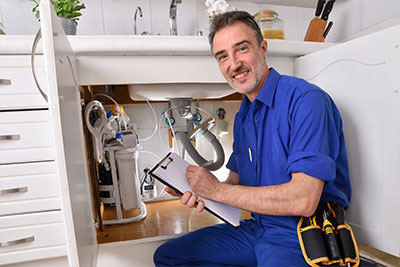 Regular maintenance of your home's plumbing system is essential to prevent unexpected problems and ensure everything runs smoothly. This blog post will guide you through the importance of inspecting your inside plumbing, including checking valves, inspecting hoses, and looking for signs of wear and tear. By staying proactive, you can avoid costly repairs and maintain the efficiency of your plumbing system.
Regular maintenance of your home's plumbing system is essential to prevent unexpected problems and ensure everything runs smoothly. This blog post will guide you through the importance of inspecting your inside plumbing, including checking valves, inspecting hoses, and looking for signs of wear and tear. By staying proactive, you can avoid costly repairs and maintain the efficiency of your plumbing system.
Why Regular Plumbing Inspections Matter
- Prevent Costly Repairs: Small issues, if left unattended, can escalate into significant problems requiring expensive repairs.
- Increase Lifespan of Plumbing Systems: Regular maintenance and early detection of problems extend the lifespan of your plumbing components.
- Improve Water Efficiency: Identifying and fixing leaks promptly can save a considerable amount of water, reducing your utility bills.
- Ensure Water Quality: Keeping your plumbing system in good condition helps ensure the water you use for drinking, cooking, and bathing remains clean and safe.
Key Areas to Inspect
1. Valves
Valves control the flow of water throughout your plumbing system. Regularly inspecting and testing them ensures they function correctly.
- Open/Close Valves: Test all valves by opening and closing them. Ensure they turn smoothly without sticking.
- Check for Leaks: Look for any signs of leakage around valve joints and handles.
- Lubricate Moving Parts: Apply appropriate lubricants to moving parts to keep them functioning smoothly.
2. Hoses
Hoses connect various plumbing fixtures and appliances, such as washing machines and dishwashers, to the water supply. Inspecting hoses helps prevent leaks and bursts.
- Inspect for Wear and Tear: Check hoses for cracks, bulges, or fraying. Replace any hoses that show signs of wear.
- Ensure Secure Connections: Make sure hose connections are tight and secure. Loose connections can lead to leaks.
- Use High-Quality Hoses: Consider upgrading to high-quality, braided stainless steel hoses, which are more durable than rubber or plastic ones.
3. Pipes and Fittings
Inspecting the pipes and fittings throughout your home can help you spot potential issues before they become major problems.
- Look for Corrosion: Check for signs of rust or corrosion on metal pipes, especially around joints and connections.
- Check for Leaks: Inspect all visible pipes for drips or puddles of water, which indicate leaks.
- Examine Pipe Insulation: Ensure pipes in unheated areas, like basements or crawl spaces, are adequately insulated to prevent freezing.
Signs of Wear and Tear
Regularly checking for signs of wear and tear can help you catch issues early:
- Discolored Water: Brown or yellow water can indicate rusting pipes.
- Low Water Pressure: Reduced water flow can be a sign of blockages or leaks.
- Unpleasant Odors: Foul smells coming from drains can indicate clogs or sewer line issues.
- Unusual Noises: Banging or gurgling sounds in pipes can signal airlocks or water hammer issues.
Steps for a Thorough Inspection
- Create a Checklist: Make a comprehensive list of all the components to inspect, including valves, hoses, and pipes.
- Turn Off the Water Supply: Before inspecting or replacing parts, turn off the main water supply to prevent accidents.
- Use Proper Tools: Equip yourself with the necessary tools such as wrenches, pliers, and pipe tape.
- Document Findings: Keep detailed records of your inspections, noting any issues found and repairs made.
- Schedule Professional Inspections: While regular DIY inspections are valuable, scheduling annual professional inspections can catch problems you might miss.
- Contact a Licensed Plumber: If you encounter any issues that are beyond your skill level or if you are unsure about a particular problem, contact a licensed plumber for professional assistance. It's better to be safe and ensure the job is done correctly.
Regular inspection and maintenance of your home's plumbing system are vital to ensuring its efficiency and longevity. By routinely checking valves, inspecting hoses, and looking for signs of wear and tear, you can prevent minor issues from becoming major headaches. Stay proactive in your plumbing care to maintain a smoothly running home and avoid unexpected and costly repairs.
If you have any questions, call or contact Litaker Insurance today.
